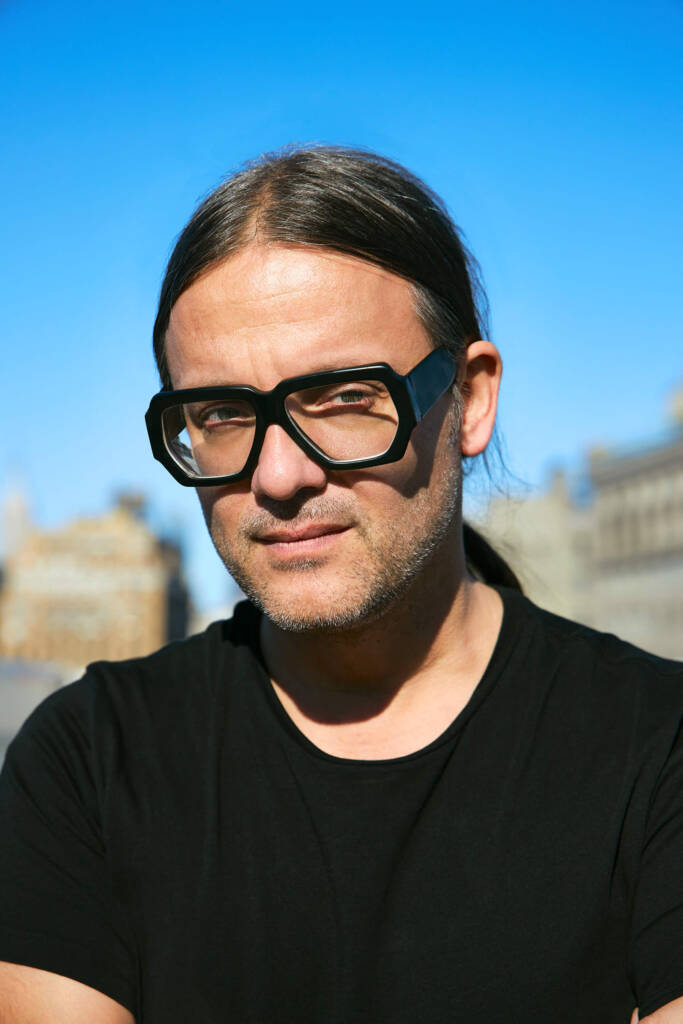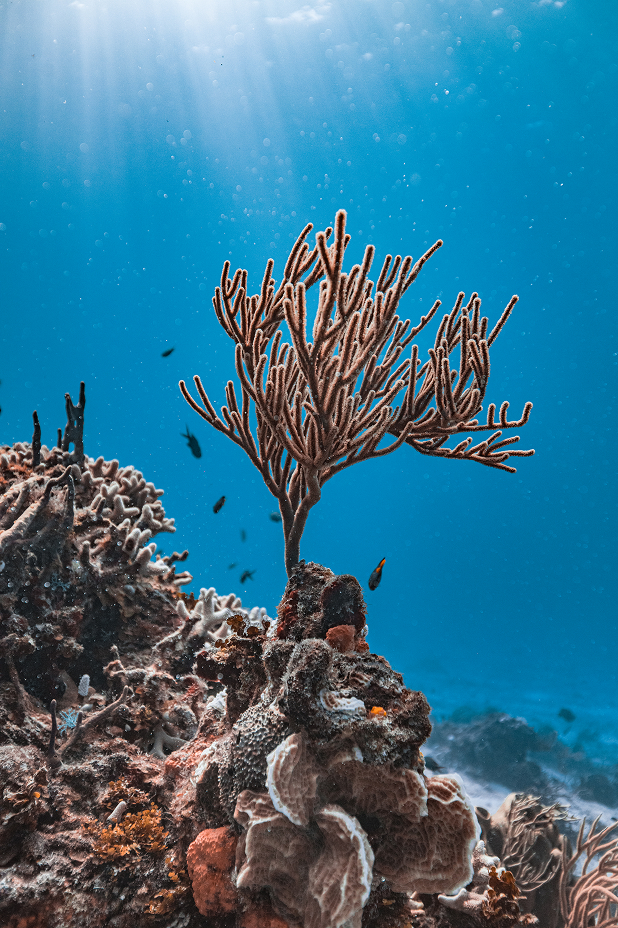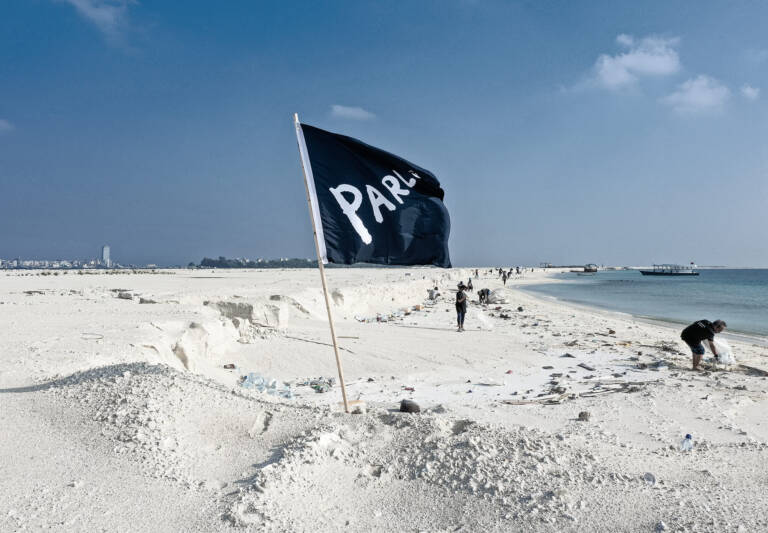

Cyrill Gutsch’s activism has a somewhat surprising origin story. In 2012, the German designer and brand developer learned about Captain Paul Watson—founder of Sea Shepherd—whose work protecting the oceans had seen an international warrant put out for his arrest. Intrigued by his tale and inspired by his actions, Gutsch flew to Germany to meet him. The conversation that followed—held in the office of Watson’s legal team—moved Gutsch to found Parley for the Oceans: an organisation redefining environmental activism.
Parley tackles some of our planet’s most pressing challenges—plastic pollution, overfishing, and climate change—by enlisting the creative community and the mechanisms that drive the world of design. Parley aligns its activist goals with leading names and global trends, with partners including artists Jenny Holzer and Doug Aitken, luxury brands and retailers Dior and Dover Street Market, and business giants like G+D and Thales.
Whether it’s running education initiatives, masterminding global cleanups, or accelerating the development of eco-innovative and biofabricated materials, Parley’s work reframes the way we approach and understand our environment.“Activism is no longer a fringe movement, it’s become a mainstream force,” explains Gutsch. “When we work together with urgency, we can change the course of history.”
hube: The ocean is the foundation of life on Earth and a vital force sustaining the planet’s natural balance. In your view, how close are we to causing irreversible damage to this ecosystem?
Cyrill Gutsch: We’re already at the critical tipping point. This is it, our last chance to turn ourselves around. The ocean is under enormous stress, and while ocean ecosystems can be resilient if protected and left alone, much of the damage we’ve inflicted is already irreversible. Human activity is rapidly harming life that formed over billions of years; now pollution, overfishing, and climate change threaten to collapse the stability of something we all depend on and are only just starting to understand. Plastics have infiltrated every part of the ocean, from the surface to the deepest trenches. Ancient coral reefs are bleaching and dying due to rising ocean temperatures and acidification. In the past couple of years, ocean heat was so high that scientists thought their instruments were broken. Sea surface temperatures broke records for 15 consecutive months and key ocean currents that regulate global weather are slowing down. Biodiversity rates are plummeting while sea levels climb and unprecedented storms have become the new norm.
The oceans are our life support system. They regulate the climate, house 99.9% of the biosphere, and provide most of the oxygen in the air we breathe. Our actions will determine whether we can restore the balance of vital ecosystems or continue down a path of destruction. This is why all of us must act—to cut plastic waste, stop overfishing, and support global initiatives to protect and regenerate marine ecosystems. The ocean is huge and resilient, but as Dr. Sylvia Earle says, it’s not too big to fail. I refuse to accept that our generation will leave behind a dead ocean, so I’m trying to create change while we still have the opportunity to act.
h: Our priorities are influenced by our standard of living, education, and social norms. How do you think art impacts or shapes this process?
CG: I believe art plays a powerful role in shaping our priorities, encouraging us to question and reflect on how we relate to the planet and to one another. Art transcends the limits of language and communicates on a deeper level, calling on our emotions, our imagination, and our ability to see the world differently. It can shift perceptions, challenge norms, and inspire action in ways that traditional methods like education or policy alone can’t—that’s why artists have always been at the heart of our cause.
When we started Parley for the Oceans, we realised that people need to feel the urgency of the situation. Facts and statistics can be overwhelming and impersonal, but art has the ability to create a sense of shared responsibility and empathy that drives change.

